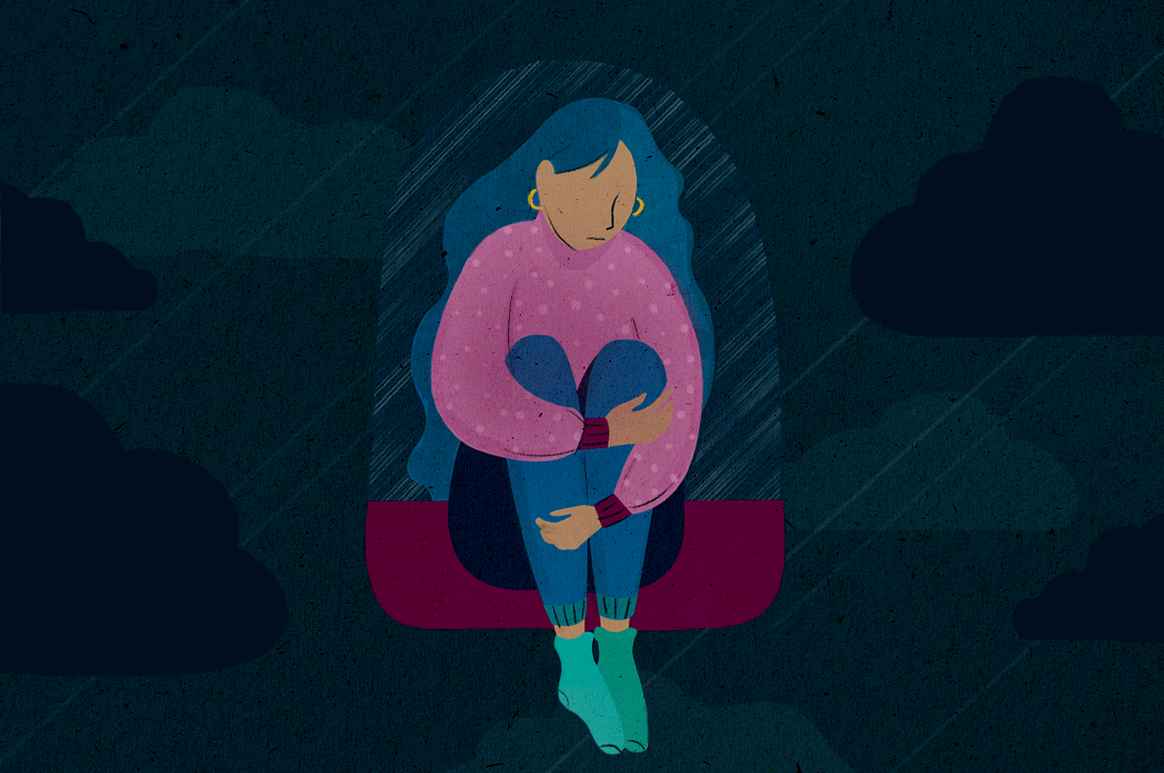Young Women + Girls: Mental Health Brief
TW: suicide
Even before the shutdown, researchers were studying alarming increases in anxiety, depression, and other mental health concerns among teenagers. Our own research, conducted before the pandemic, revealed that Allen County girls in grades 7-10 were more than twice as likely to have made a plan for suicide than boys. Our study also found that middle and high school girls report feeling sad and hopeless, reporting higher rates of contemplating suicide than boys.
New national research reveals that teenage girls are attempting to end their life at devastating rates, citing a 50% increase in girls being admitted to the hospital for suspected suicide attempts in the last two years. The same report also indicates a 55% rise in eating disorders, a 38% rise in depression diagnoses, and a 33% rise in anxiety disorders.
Pandemic aside, it’s a difficult time to be a teenager: increased social media pressures, academic expectations, limited access to mental health services, economic instability, social unrest. COVID-19 has now piled on isolation, extreme amounts of screen time, grief, caregiving responsibilities, economic insecurity, and school interruptions. Teens have been stripped of important mental health anchors like sports, social gatherings, and interactions with trusted teachers, coaches, or counselors.
Being stuck at home and unable to participate in their usual hobbies, teenagers are spending even more time on social media. Almost 40% of girls who spend more than five hours a day on social media show symptoms of depression. More time spent on social media has a direct correlation with suffering from low moods, depression, being unhappy with how one looks, and getting less than seven hours of sleep a night. A recent WSJ report cited Facebook’s own internal research confirming that Instagram worsens body image issues for one in three teen girls using the app.
One participant in our latest Young Women + Girls research shared,
“Sometimes I feel that I will never be good enough, that I need to change myself in order to be accepted by society. This can keep me up at night sometimes because the only thing that I really value is being a part of a group…and having strong friendships. It’s hard to have that if you feel like you’re not good enough.”
Another participant in the Young Women + Girls study shared that she used to spend close to ten hours a day on Instagram, Snapchat, and TikTok, until she realized how much worse it made her feel to see a never-ending stream of perfectly-edited highlights of others’ lives. In our survey, 86% of respondents indicated that they feel pressure to change the way they look. With filters and face-altering apps erasing “blemishes” and thinning silhouettes, the line between reality and filter is heavily blurred.
These unrealistic portrayals can make anyone feel bad about themselves, but hormonal changes can make teen girls even more susceptible to self-loathing and other social anxieties. Teen girls are also more likely than their male peers to be required to share caregiving responsibilities and household work: evidence shows that teen girls have had a tougher time in the pandemic because of increased incidents of gender-based violence and the burden of care.
According to the 2022 Mental Health America report, 2.5 million youth in the U.S. have severe depression, and multiracial youth are at the greatest risk. 60% of those do not receive any mental health treatment. The good news for Indiana is that we are one of only nine states in the nation that have adopted Suicidal and 998 Implementation, the first nationwide telephone number to help people with any behavioral health crisis 24 hours a day, seven days a week. creating an opportunity to improve mental health responses and prioritizing equity of care for BIPOC individuals.
One of our survey respondents shared,
“ I am very concerned about my friend’s safety. Anxiety and depression seem to have taken a hold of her, and I don't know how to fix it. She needs a supportive adult but doesn't have one who understands what it's like to be a young woman right now, dealing with the pressures of social media, and the rigor of school.”
What our young women and girls need from us is to make them feel like they are truly heard: to validate that the issues they are facing are real and that they don’t have to face them alone. Our survey indicated that 30% of teen girls experience anxiety, depression, and stress. The good news is that today’s teenagers are far more likely to have conversations about mental health than previous generations. If we can individually be willing to have the hard conversations to normalize and navigate mental health, we can collectively continue to advocate and support programs that will help our girls thrive.
What next steps can we take?
If you have children, set clear boundaries around social media for your whole family, and discuss unrealistic expectations social media can portray
Normalize conversations about mental health: don’t be afraid to talk about depression, anxiety, or suicide.
Know the warnings signs of declining mental health in youth
Check out some of these great books for teen mental health:
Advocate for and support initiatives to increase mental health programs in public schools: many students only receive mental health services in educational settings
Share this article!

